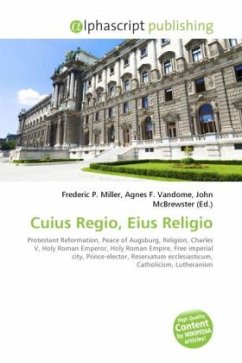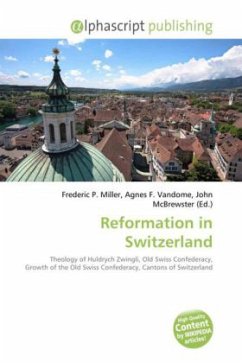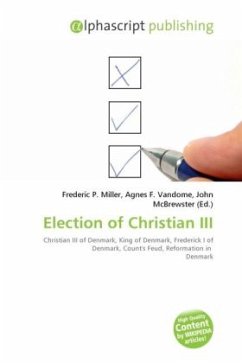Cuius regio, eius religio is a phrase in Latin loosely translated as "Whose realm, his religion". In other words, the religion of the ruler dictated the religion of the ruled. The rulers of the German-speaking states and the Charles V, Holy Roman Emperor, agreed to the principle in the Peace of Augsburg (1555), which ended armed conflict between the Catholic and Protestant forces in the Holy Roman Empire. The principle applied to most of the territories of the Empire, with the exception of the several of the sovereign families and Imperial cities and the Ecclesiastical principalities, whose issues were addressed under separate principles (see Ecclesiastical reservation and Declaratio Ferdinandei). The principle only extended legitimacy to two religions within the Empire, Catholicism and Lutheranism, leaving out such reformed religions as Calvinism, and such radical religions as Anabaptism; any other practice of worship beyond the two legal forms was expressly forbidden and legally considered a heresy, a crime punishable by death.
Bitte wählen Sie Ihr Anliegen aus.
Rechnungen
Retourenschein anfordern
Bestellstatus
Storno








